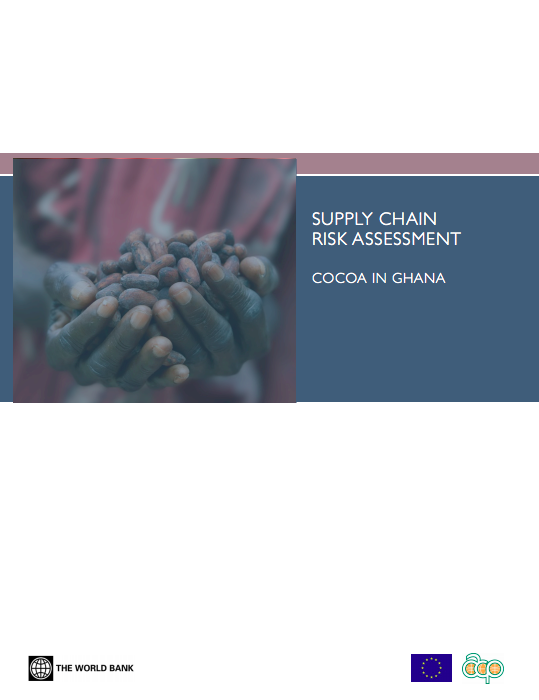Supply Chain Risk Assessment: Cocoa in Ghana

Cocoa holds a unique position in Ghana’s economy. It has long played a crucial role in Ghana’s economic development and remains an important source of rural employment. It also remains the country’s most important agricultural export crop. Among development priorities, the Government of Ghana (GoG) is committed to securing the future profitability and sustainability of the cocoa supply chain. To this end, following decades of declining output and stagnation, GoG has made sizable investments in restructuring the industry, improving productivity, and reducing marketing inefficiencies. It has set ambitious targets to raise output while maintaining its industry-leading quality standards. These initiatives have paid dividends in recent years, with significant gains in national output in the most recent decade along with surging export revenues. In 2009-10, Ghana exported more than half a million tons of cocoa beans, generating over US$1.6 billion in foreign exchange. Early indications suggest that cocoa purchases for the current year will fall just short of 1 million tons, securing the country’s position as the world’s second biggest producer of cocoa.
Amidst robust Government of Ghana support, current trends in the global market for cocoa and cocoa products suggest strong potential for further growth ahead. Yet, a number of risks threaten to derail the subsector’s recovery. A deeper understanding of these risks and their existing potential to inflict damage and undermine growth is essential for the development of an appropriate risk management strategy. The purpose of this current study was to assist the Ghana Cocoa Board (COCOBOD) to: 1) gain a better understanding of which risks pose the greatest threat to Ghana’s cocoa supply chain; 2) assess existing gaps in current risk management mechanisms; and 3) identify investments that would best serve to address those gaps.It is hoped that this study will contribute to a better understanding among policy-makers, COCOBOD officials, and other stakeholders of the most important risks facing the domestic supply chain.